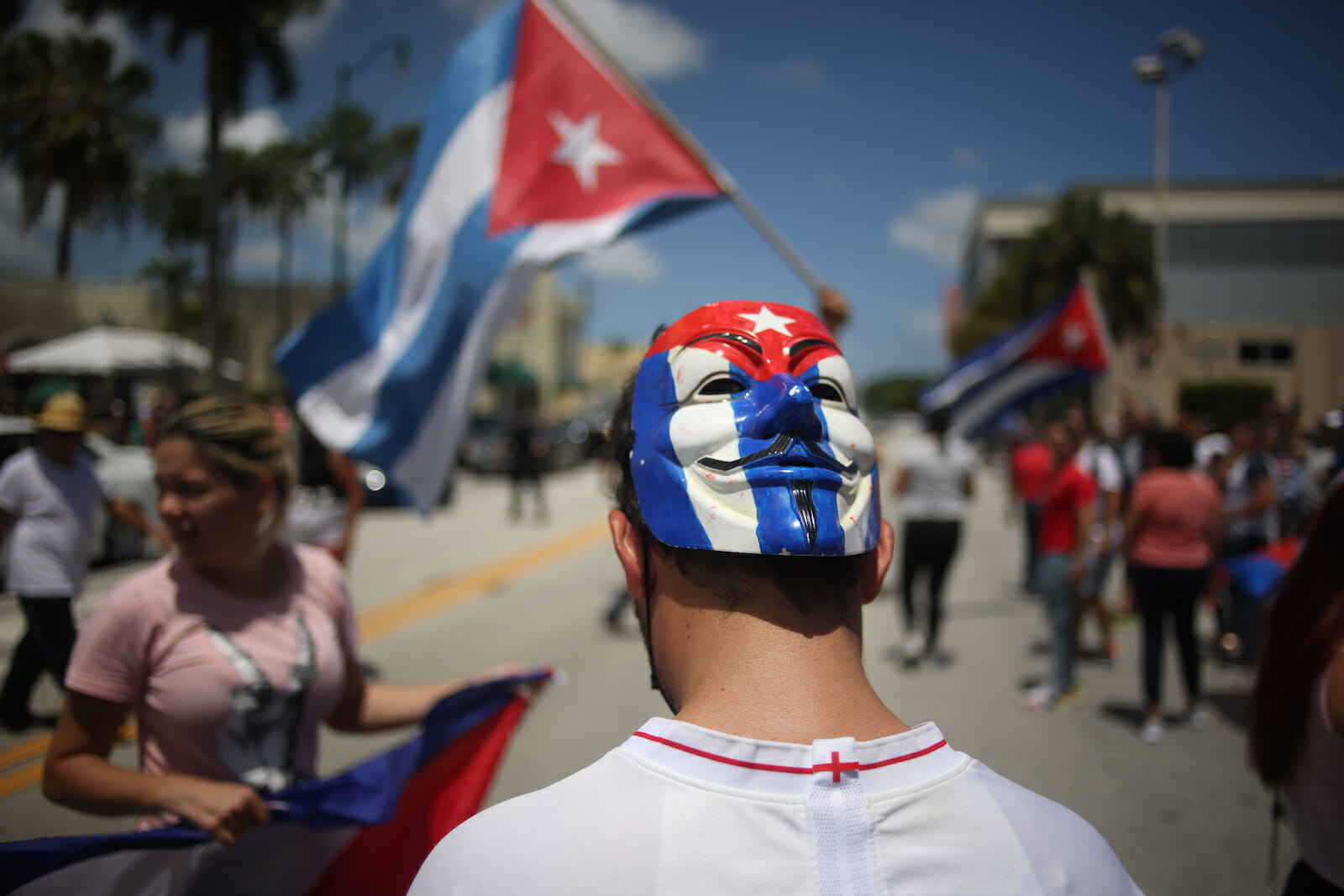
U.S. Should Lift Sanctions on Cuba to Promote Liberty
Just one month after protests swept across Cuba, we have already forgotten about our Cuban neighbors.
For the past 60 years, we’ve consistently reacted to changes in Cuba by offering our fleeting attention and imposing lasting sanctions. As the recent flurry of attention toward Cuba dissipates, the U.S. must recognize that this sanction-and-forget strategy is out of date. The situation in Cuba demands a new American approach — one that empowers the people of Cuba to change their own country.
Modern U.S. policy toward Cuba can be traced back to the 1992 Cuban Democracy Act which largely fortified existing restrictions and reaffirmed the U.S.’s commitment to sanctioning Cuba. Even at the time that it was adopted, the bill was confusing. While the law itself states that it intends to promote a “resumption of economic growth in Cuba,” the law’s sponsor explicitly stated that he intended to “wreak havoc on that island.” It’s a contradiction that can’t be rectified, but thankfully, nearly 30 years later, Biden has expressed his willingness to revisit these restrictions.
That’s good news. We shouldn’t be sanctioning the Cuban people, we should be helping them liberate themselves.
It’s not easy to support economic growth in Cuba without supporting their government’s oppression, but a policy that aims to “wreak havoc” on the Cuban economy is, by no means, a good alternative. These malicious sanctions hurt more than they help. In 60 years, they’ve done nothing for the Cuban people.
More often than not, victories for freedom in Cuba have come from within its own borders. Voicing their widespread dissatisfaction with their government, the Cuban people have made important gains, like the legalization of small and medium sized businesses. The U.S. should reexamine its policy toward Cuba with that in mind.
Instead of slapping sanctions on the country that hurt the very people we intend to help, the U.S. should adopt a foreign policy that leverages the strength of our society to empower free minds, free people, and free markets. By lifting sanctions and allowing American goods and American ideas to flow freely into Cuba, we can help the Cuban people promote liberty as well as economic prosperity.
For example, with the freedom to travel between Havana and Miami, the music group Gente de Zona pollinated free minds throughout Cuba with their protest anthem, “Patria y Vida.” The title translates to “homeland and life” and clearly resonated with Cubans whose government has long preached “patria o muerte” — homeland or death.
Protestors around the world chanted these lyrics in support of change in Cuba, demonstrating the importance of enabling free people like Gente de Zona — “People from the Hood” — to travel and work freely.
Regarding other specific sanctions, like limits on sending remittances to Cuba, the U.S. should similarly seek to empower free people rather than restrict them. Biden expressed his openness to allowing remittances but also his concern that the Cuban government would confiscate the funds which are worth $3.7 billion annually.
Regardless, we must empower and enable free people to discover the best ways to support their families in Cuba by lifting these sanctions prohibiting remittances. The U.S. must trust that the Cuban people will foresee this possibility and adapt accordingly.
And as we recognize the impotence of our sanctions and past interventions in Cuba, the U.S. government must start rebuilding our reputation that remains damaged decades after our failed interventions. Congress has long claimed to have been betrayed by Cuba, but we must recognize that interventions like the Bay of Pigs as well as lasting institutions like Guantanamo Bay and restrictive sanctions only fuel the Communist narrative that the U.S. government has malicious intentions for Cuba.
Further intervention in Cuba must therefore be avoided. Even peaceful interventions, like Biden’s suggestion to turn on the Internet for Cubans after their government cut off access, would surely backfire and risk eroding local momentum for reform.
Enabling free people to move and decide more freely may eventually support a series of marginal changes that revolutionize Cuba, but as a government, the U.S. can do little besides welcome Cuban people onto American soil and enable free minds to go to work in a freer market.
The solution is not straightforward, simple, or centralized. Rather, it’s a long, difficult, and spontaneous process that mirrors the seemingly everlasting struggle of the Cuban people.

